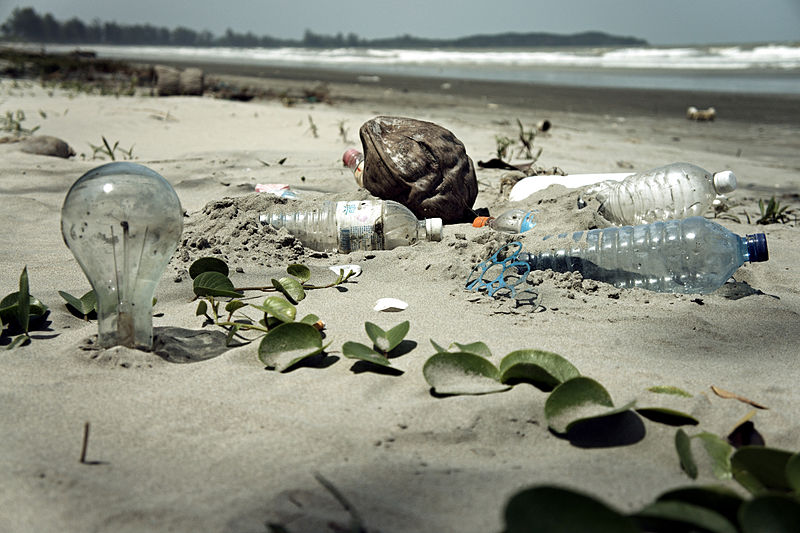rabble is expanding our Parliamentary Bureau and we need your help! Support us on Patreon today!
It’s encouraging that our newly elected federal government has agreed to improve efforts to safeguard Canada’s oceans. Ocean protection here is shamefully deficient, currently at around one per cent. The new government has restated our country’s commitment to protect 10 per cent of our oceans by 2020, as part of a global agreement Canada signed in 2010 at the 10th meeting of the Convention on Biological Diversity.
Increased ocean protection was one change called for in a recent peer-reviewed paper written by 19 scientists from across the country (including my daughter, Sarika). “Canada at a Crossroads: The imperative for realigning ocean policy with ocean science” offers recommendations for government to step up its game when it comes to ocean health.
The report highlights recent federal conduct that has increased the vulnerability of our coasts, including changes to the Fisheries Act (most notably, decreasing habitat protection), disregard for the Oceans Act (an important framework that emerged in the late 1990s outlining ocean management and protection) and inaction on species at risk.
Weak ocean protection hinders our coasts’ ability to remain resilient in the face of many challenges. A recent report in Science estimated that globally in 2010, five to 13 million tonnes of plastics ended up in the oceans. Plastics often break down into tiny, toxic pieces called “nurdles,” which are turning up in the stomachs of many marine birds, fish and turtles.
Agricultural runoff, untreated sewage and coastal development have added to the ocean sludge and created hundreds of wastelands devoid of oxygen, or “dead zones,” which can change fishes’ sex organs and leave animals gasping for air.
Over the past two years we were also hit by the “the blob,” a large patch of water in the Pacific Northwest that is 3° degrees C warmer than average. It’s a product of unseasonably hot, dry weather and is the highest water temperature ever recorded in this area. When I heard triggerfish were showing up in the North Pacific, I was shocked. They’re tropical fish! The blob brings some warm-water hitchhikers.
Carbon dioxide is perhaps the most dangerous human waste found in our oceans. CO2 from the atmosphere is absorbed at the water’s surface, where it reacts with seawater and turns into carbonic acid before breaking down further into acid and bicarbonate ions. We know changing the pH of seawater is dangerous for marine life.
On the West Coast we’ve recently seen scallops struggling to make shells, a chilling portent of what might come as oceans become more acidic. A study published earlier this year in Nature Climate Change found that many shellfish are extremely vulnerable to ocean acidification and that some areas most at risk are also least prepared to respond and adapt to the crisis.
Still, there are signs that Canada is ready to take ocean health seriously. “Canada at a Crossroads” ends by offering a constructive to-do list to help this country get back on track, and our newly elected government has made a number of commitments that align with its recommendations. They include reassessing the recent Fisheries Act amendments, reversing funding cuts to Fisheries and Oceans Canada, increasing marine and coastal protected areas and allowing government scientists to speak freely about their work. The government has also moved to formalize the moratorium on crude oil tankers on B.C.’s North Coast, which will help ensure coastal biodiversity is protected from spills.
The government should also ensure that oceans are an integral part of the upcoming UN climate summit in Paris November 30 to December 12. Because they absorb carbon dioxide, oceans are critical in the fight against climate change, and they are vulnerable to its effects. I hope Canada plays a constructive role in Paris and at home to ensure that oceans and all the life they support are protected and cared for.
It’s refreshing to see studies with constructive recommendations for these serious issues, and to see the federal government respond positively. Let’s hope we’ve entered a new era in maintaining and enhancing the health of our oceans.
Oceans supply half our oxygen, absorb a quarter of our emissions, produce food, regulate climate and weather, give us medicine, culture, renewable energy and jobs, and support a diversity of life. We can’t live without them.
Written with contributions from Sarika Cullis-Suzuki, PhD, marine biologist, visiting scientist at the University of Victoria’s Ocean Networks Canada and David Suzuki Foundation board member.
Learn more at www.davidsuzuki.org.



